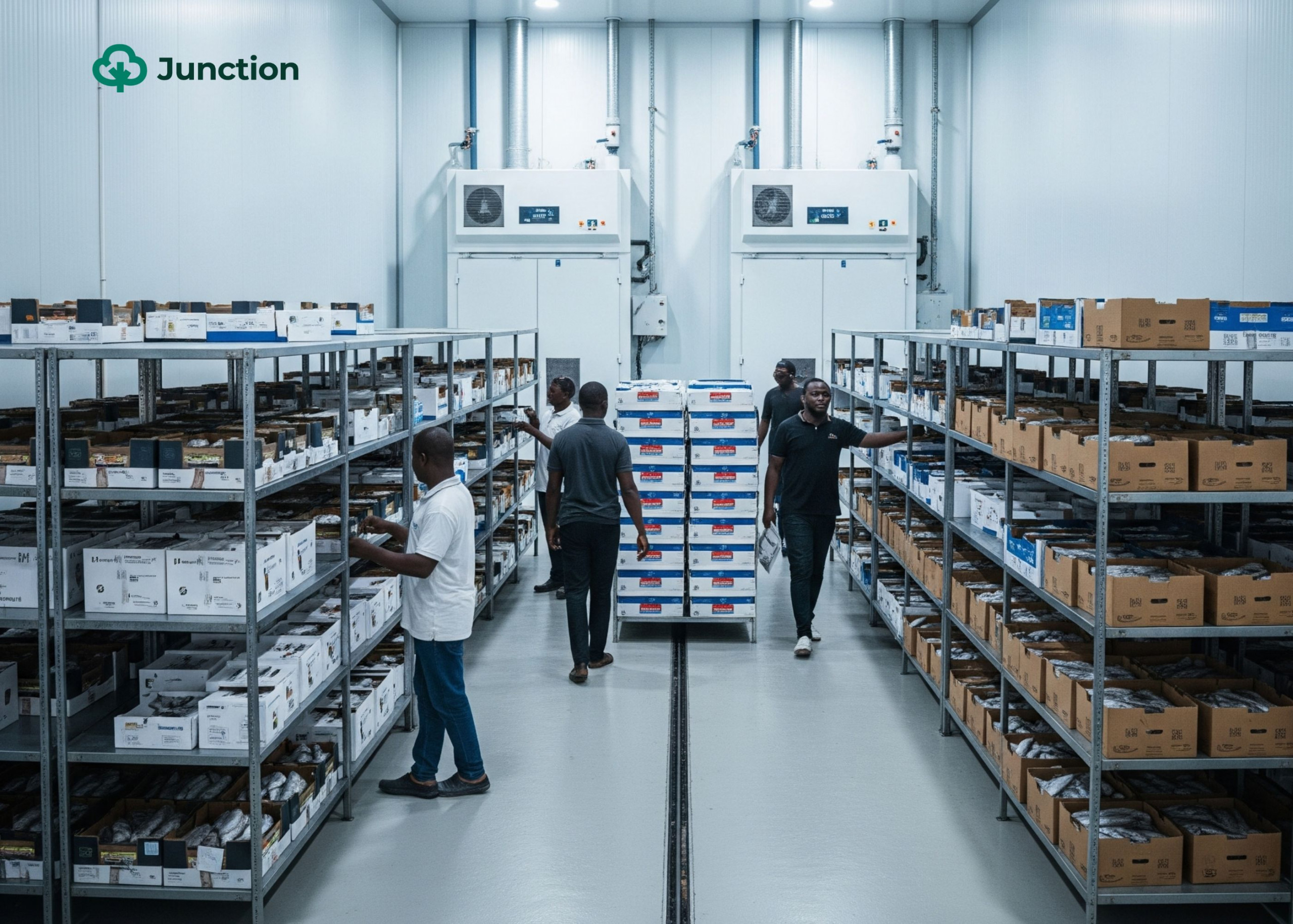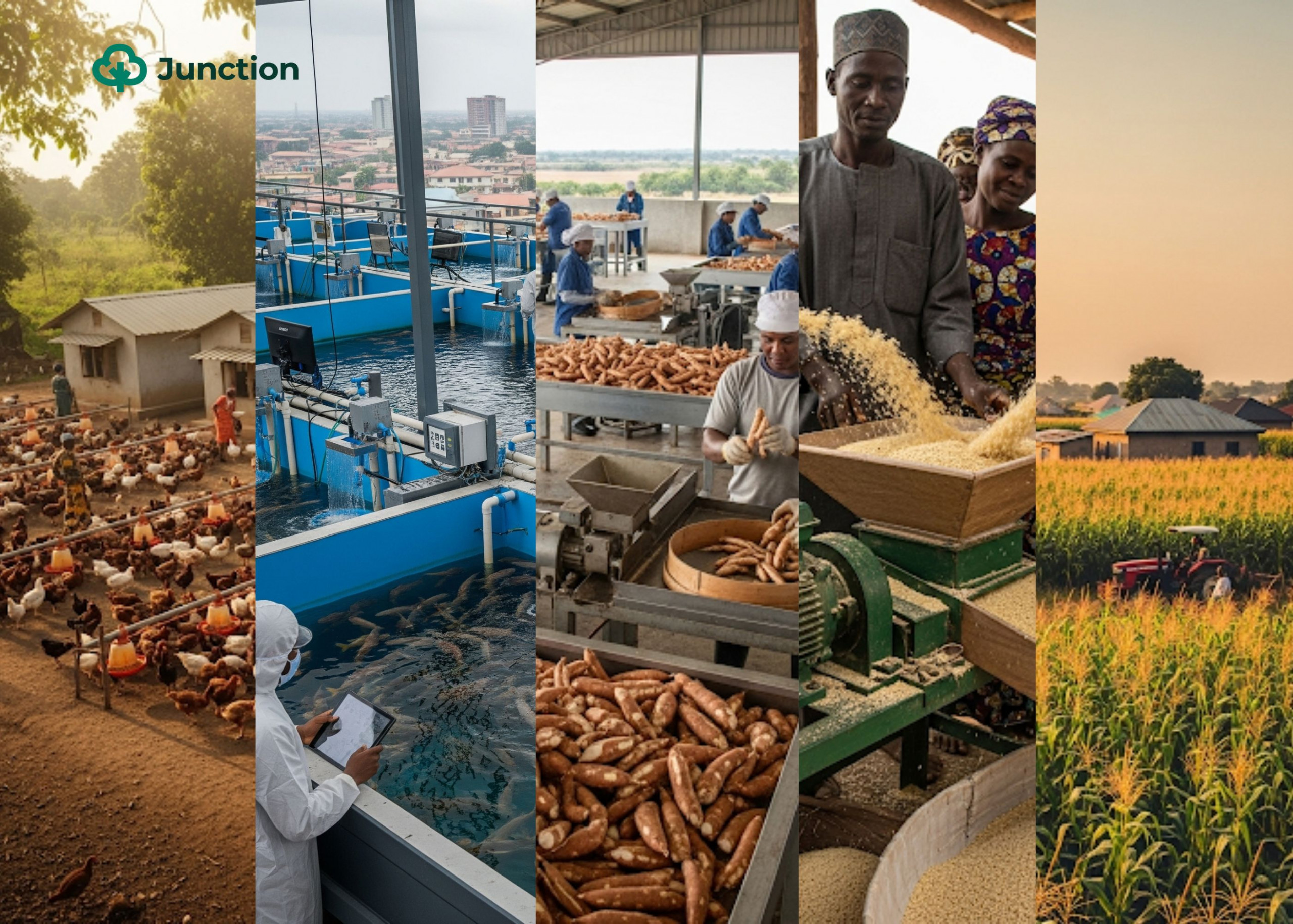As the world’s largest producer of cassava, 60.8 million tonnes in 2022, a significant portion of Nigerian farmers grow the cassava as their major or minor activity. One study claimed that almost all farmers in the southeastern, southwestern and central zones of the country are involved in cultivating the crop.
With 95% of all of the crop produced going into human consumption, the venture is steered towards catering to the direct nutritional needs of Nigerians. In its various forms —starch, tapioca, garri, unfermented flour, fermented flours, cossette, fufu, lafun— about 70% of Nigerians consume cassava daily. It is a prominent feature of household meals and you likely ate something of the sort in the last seven hours, I know I did.
Nigeria produces the most cassava in the world, responsible for more than 18% of the crop!
Yet, producers in the country does not export any significant portion.
Why?#Nigeria #cassava #crop #farmers #export #agriculture pic.twitter.com/9KemOlWgsP
— The Junction (@AgricJunction) May 23, 2024
However, farmers rarely sell fresh cassava to the final consumer as the consumable forms mentioned above require some degree of processing. So, they typically sell to processors. This clarification is important as it informs farmers looking to enter the industry who their major buyers are.
As a business, it is important for cassava farmers to reduce risks that can affect their eventual profit. An expert, who has been involved in cassava production for over a decade, pegged the return on investment for a production cycle at about 65%. Thus, any factor that can reduce this return is a risk that requires mitigation.
Some of these risks include climate variability (rainfall patterns and temperature), pest and disease outbreaks, carbon and sulphur pollutions from overusing agrochemicals, poor technical knowledge, negative price movement, insecurity, concentration of local market, and so on.
Nine risk mitigation tips for cassava farmers in Nigeria
- Poor technical knowledge: Take the time to acquire necessary knowledge and skills required to successfully grow cassava. Although, planting this crop is as easy as stabbing a stick into the ground, there are improved practices that can reduce risks, improve yield and more effectively use resources. Learning these practices by reading article like this, attending trainings and workshops, or picking a mentor can be the difference between profit and loss.
- Climate variability: This risk is termed ‘an act of God’ because of how unpredictable it can be, even with historic data, as climate change makes them erratic. Thus, before choosing a location for your cassava farm, scout the area and conduct research on its climatic condition. The result of your findings should inform your choice of location. In addition, farmers can set up irrigation systems to reduce their reliance on rainfall.
- Insecurity: Avoid areas prone to cattle and herdsmen rampages when setting up a cassava farm because of the high risk and increased operational expenses. Several news reports of herdsmen rampages and attacks are linked to tuber crops (including yam). So, you will be forced to invest a significant part of your production cost in hiring security operatives to protect your farm if choose such locations.

Herdsmen leading cattle. - Soil degradation: Degraded land can lead to poor yield and will require increased fertiliser use which increases the cost of production. It is important to note that while this improves yield, it is not a sustainable practice as it further degrades the land and encourage over reliance on agrochemicals which contribute to carbon and sulphur pollutions. For natural land recovery, you adopt cultural practices like no-till or reduced tillage, crop rotation, planting native vegetation, cover cropping, mulching, and composting.
- Pest and diseases: Pests and diseases of cassava are more common in the South West and South East parts of Nigeria than the North Central. With these prone regions being the best choice for growing the crop because of abundant rainfall and suitable soil, it is important to adopt practices that reduce this risk. Sustainable practices like improving plant health, using varieties that are resistant, encouraging the presence of natural predators and competitors, as well as removing infected plants, are effective in the longrun. Meanwhile, in the short term, pesticides and herbicides can reduce pest impacts on yield.
- Inadequate finance: Nigerian farmers suffer from poor financing and many are unable to get the necessary inputs for maximum production. Running an effective operation is one way to reduce cost or production as all resources are optimally utilised. In addition, save up some funds before you start your venture and source for assistabce from friends and family. There are also several funding avenues and subsidised inputs available to smallholder and medium scale farmers in Nigeria such as those from the Bank of Industry, National Agricultural Development Fund, and several agricultural-focused financial institutions.
- Lack of market access: Access to market provides farmers with the opportunity to earn money for their farming operations. However, one factor that can prevent this access is when the produce do not meet the market requirements. To avoid this, ensure that you know what your buyers (consumers, retailers, and industries) want and poduce for these needs. Also, keep finding new ways to reach more buyers to increase your profit, if necessary.

Market women selling cassava. Image Source: CGIAR. - Price movement: To reduce the impact of falling prices on your profit, you can reach agreements with buyers (a forward contract model) ahead of harvests to lock down slaes in relation to your production costs. Alternatively, you could target premium buyers by seeking them out wherever they are or holding on to produce until the price rise again (which may incur additional cost to preserve fresh produce).
- Low revenue: You may manage all these risks and still generate relatively low revenue, especially when you consider the rising cost of living in Nigeria. In this case, you may take your production process one step further by value addition. Remember that in the beginning of this article, I listed several other forms in which Nigerians consume cassava. You can meet direct needs of people by processing your produce into finished goods. Although they are more rewarding, this extra steps will require additional costs, expertise, and labour.




